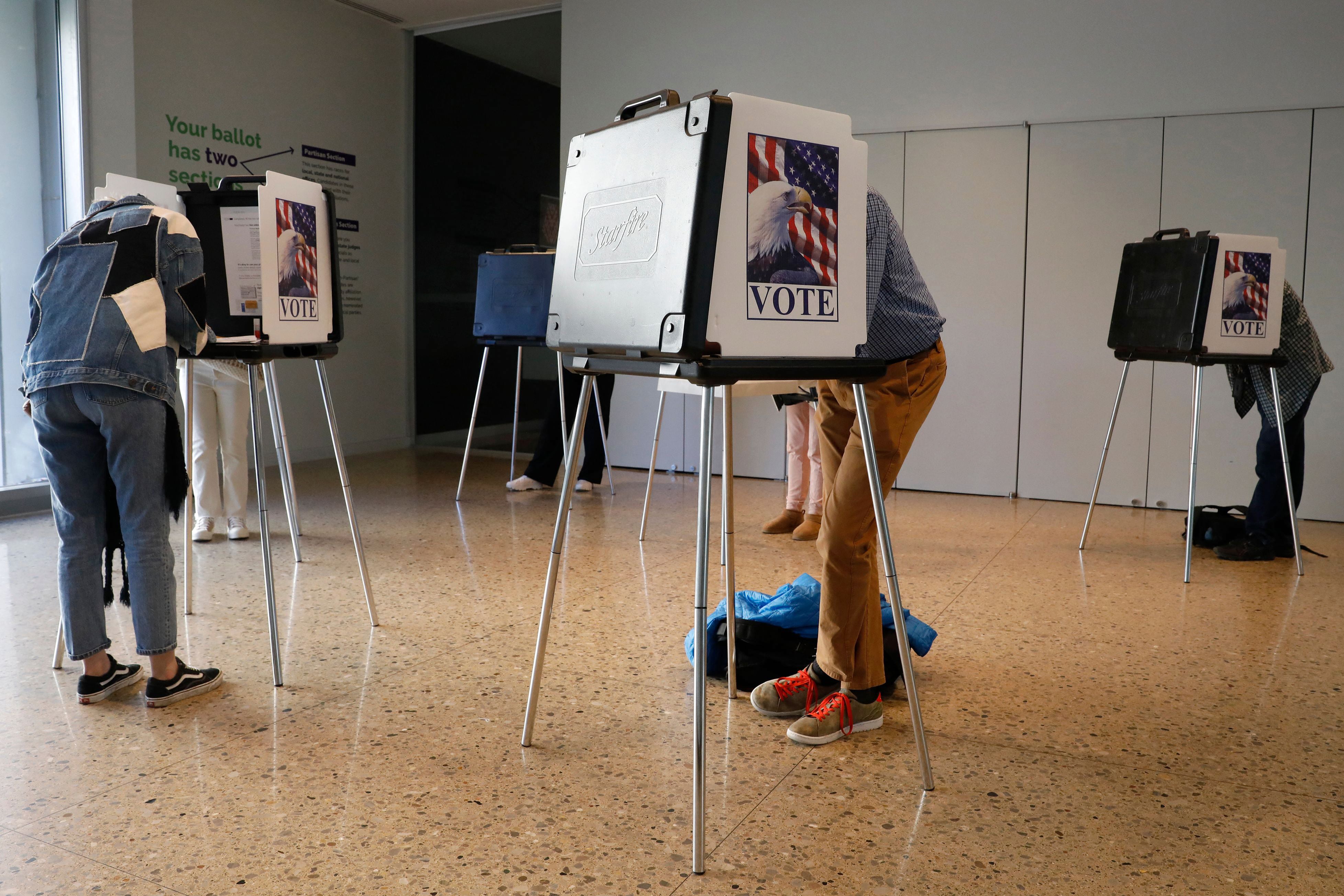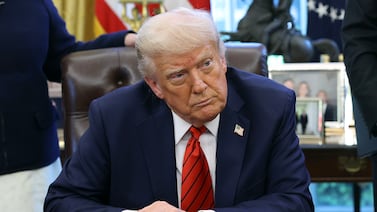Votebeat is a nonprofit news organization reporting on voting access and election administration across the U.S. Sign up for Votebeat Michigan’s free newsletter here.
A person who is not a U.S. citizen faces felony charges in Michigan after he allegedly cast a ballot at an Ann Arbor polling place over the weekend, state and local officials announced Wednesday.
That voter — reported by The Detroit News and confirmed by the Secretary of State’s office to be a 19-year-old University of Michigan student from China — could face up to nine years in prison if found guilty. Only U.S. citizens are eligible to vote in federal and state elections.
Under Michigan’s ballot secrecy protections, once a voter casts their ballot in person, often by feeding it into a tabulator, it usually cannot be identified among other ballots and retrieved or canceled later.
In a joint statement, Secretary of State Jocelyn Benson and Washtenaw County Prosecutor Eli Savit said that a local clerk referred the voter to law enforcement, who then investigated. In her own release, Attorney General Dana Nessel said her office was conducting a parallel investigation.
“Let this be clear: Voting records are public — any noncitizen who attempts to vote fraudulently in Michigan will be exposing themselves to great risk and will be prosecuted to the fullest extent of the law,” Benson and Savit said in their statement.
People in Michigan who are registering to vote or requesting a ballot have to sign an affidavit affirming that they are a citizen. Lying on those forms is a felony — one of two charges that the ineligible voter in Ann Arbor faces. The other is for being an unauthorized voter attempting to vote.
Noncitizen voting is exceedingly rare. Officials and election integrity researchers have found only a few dozen examples of noncitizen voting from around the country over the course of several years, and those examples are typically prosecuted, as officials plan to do in the Washtenaw County case.
Election experts caution that a single vote from someone who is not a U.S. citizen and is therefore ineligible to vote is not a sign of widespread illegal voting.
“Most of the time, elections don’t come down to one vote,” said Joshua Douglas, a professor of election law at the University of Kentucky College of Law. “It’s unfortunate if a ballot is counted that should not be. … But one vote that should not be counted that’s in, is not evidence that there’s thousands of votes out there in a similar situation.”
Douglas noted that noncitizens are unlikely to risk casting a ballot illegally, because they know that if they get caught, they will face both criminal charges and potential loss of their legal immigration status.
Still, across the country, conservative officials and activists have argued that large-scale noncitizen voting is a pressing threat, and they have been searching for examples of noncitizens registering or voting illegally, particularly in swing states. Michael Morley, a Florida State University professor who teaches election law, said that election officials in Republican-leaning states have done “thorough” analyses of their voter rolls, in some places triggering litigation from the Department of Justice.
“Potential noncitizens that election officials found statewide were in the order of magnitude of hundreds or maybe thousands out of millions of people registered,” Morley said of the efforts. And even those numbers could be overstated, he said, because they could include people who were flagged as noncitizens but had been naturalized, or people who otherwise aren’t correctly matched between the voting rolls and the reference database, meaning their citizenship has incorrectly been called into question.
Targeting noncitizen voting specifically can quickly escalate to a sort of witch hunt, Morley said, where the worst case scenario is someone makes assumptions about a person’s citizenship based on how they speak or the color of their skin.
The more immediate problem, he said, was the risk that the case of alleged noncitizen voting in Ann Arbor could be spun into misinformation about the overall election.
Hayley Harding is a reporter for Votebeat based in Michigan. Contact Hayley at hharding@votebeat.org.






